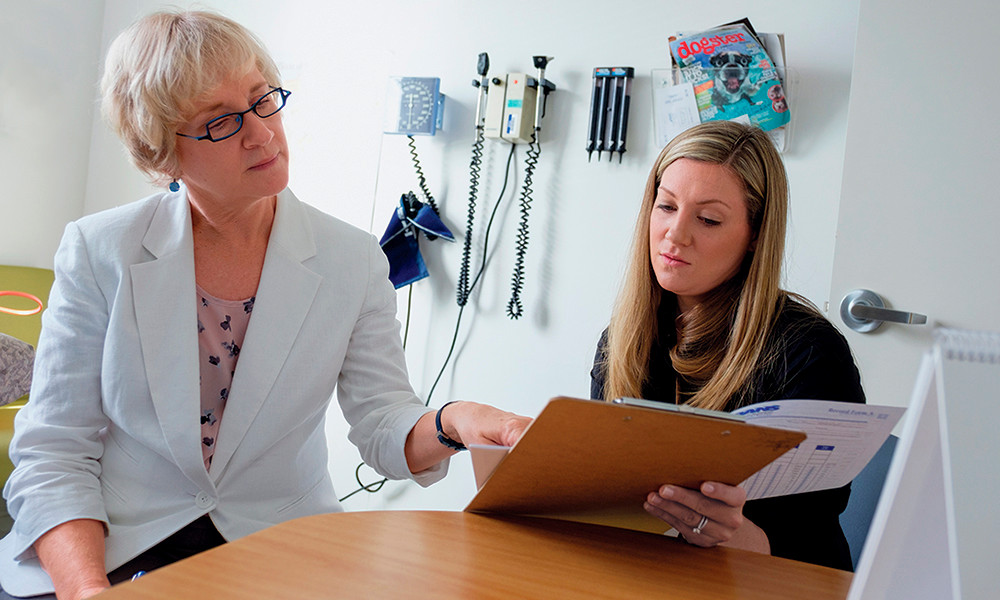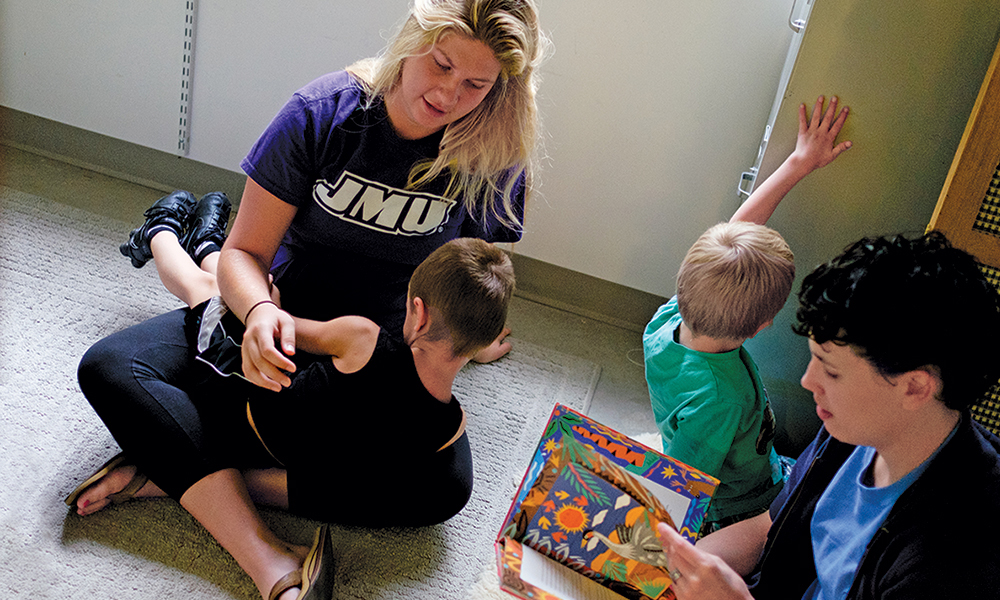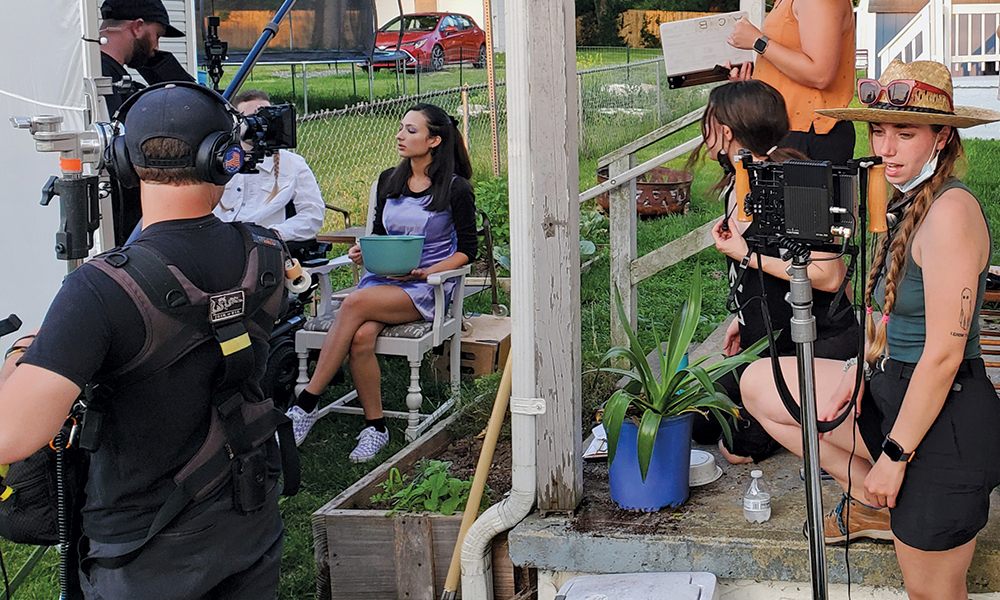IIHHS aims to improve the human condition
Institute works with communities to advance a culture of health and equity
Featured Stories
SUMMARY: Since 2022, IIHHS has garnered more than $15 million in external funding for public service and outreach projects. IIHHS’s multifaceted work has spanned the region and the state, providing crucial health and human services in Harrisonburg and Augusta, Page and Shenandoah counties.
|
“Socioeconomic status and access to quality housing, transportation and food are all factors that help people feel like they have a good quality of life.” — Dr. Linda Plitt Donaldson, IIHHS director and associate dean of CHBS |
Promoting personal, social and institutional well-being is at the heart of the College of Health and Behavioral Studies’ mission. As an extension of the college, JMU’s Institute for Innovation in Health and Human Services brings together students, staff, faculty and the community to advance a culture of health and equity through education, clinical practice, research, innovative programs and advocacy.
IIHHS was established as an interdisciplinary hub to respond to health and human services needs in the communities it serves. The institute has 16 community-based programs that operate at the local, regional and state levels. Additionally, eight of the nine community-based clinics at IIHHS are partnerships with several CHBS academic units, allowing them to function as training clinics for JMU students. “All of the IIHHS community-based programs are supported by grants. We write grants to respond to problems that the community identifies, and then we grow our capacity through our amazing students and also through the faculty,” said Dr. Linda Plitt Donaldson, IIHHS director and associate dean of CHBS.

“The scope of the institute is very broad,” added Jolynne Bartley, associate director of Children and Youth Services at IIHHS. “From Augusta County to Winchester, both geographically and numerically, we serve a big population. We have many rural initiatives surrounding our immediate Harrisonburg hub. We also work locally with our school systems, from elementary to high school. And some of our programs serve the whole commonwealth and beyond. IIHHS has a huge presence.” IIHHS programs have a common research focus of community and the social determinants of health.
“Socioeconomic status and access to quality housing, transportation and food are all factors that help people feel like they have a good quality of life,” Donaldson said, adding that research suggests social factors can be the most predictive of someone’s health status regardless of their access to care.
Individual behaviors are also examined, such as if a person drinks, smokes or exercises. “None of those factors are as important as whether you have a safe, decent place to live; whether you’re living in poverty; or whether you feel safe and have access to food and transportation,” Donaldson said.
Bartley oversees Claude Moore Precious Time, a pediatric respite care program that provides families of children with disabilities and special health care needs an opportunity to take a break from the demands of caregiving. Students in Nursing and Health and Human Services provide respite care for families within a one-hour radius of JMU as part of their learning experience.
|
“We made sure that we’re casting people who actually have disabilities and ensuring that we’re portraying that on screen in a way that honors the work of the youth leaders at I’m Determined.” — Brent Finnegan, director of Health Education Design Group |
Another IIHHS program, The Gus Bus, is a community literacy and academic enrichment program that serves pre-K and elementary-school students in Harrisonburg. Its mission is to foster a love for learning in young students through its mobile classroom vehicles, on-site after-school programs, in-home tutoring program and summer day camps.
IIHHS’ Health Education Design Group produces content for health and human services organizations, including educational online courses, medical training and how-to videos.
HEDG delivers modules for the Institute for the Advancement of Family Support Professionals, helping individuals, couples and families develop the skills and resources necessary to build healthy and stable home environments.
“We’re constantly refining our processes based on user feedback of the learners who have taken the modules and give us feedback through the surveys,” said HEDG Director Brent Finnegan. “We’re also checking to make sure that a lot of the information that’s there is updated, and they’re keeping up with federal and state best practices as those change.”
HEDG partners with School of Media Arts and Design students interested in film production. “By the time they graduate, they have projects that they can be proud of and use to find employment in the industry,” Finnegan said.
In recent years, HEDG has collaborated with other IIHHS programs, including The Gus Bus and SexEdVA. In 2022, it worked with SexEdVA’s Youth Advisory Board to produce the short film Follow You, Follow Me, which won Best Screenplay at the Swan International Women in Film Festival in Perth, Australia.

“Follow You, Follow Me was written and directed by HEDG staff writer and 2018 SMAD graduate Sydney Thier,” Finnegan explained. “It tells the story of two young adults as they navigate the complex intimacies of a budding, interabled relationship.”
From counseling to occupational therapy, autism to attention-deficit issues, migrant camps to homeless shelters, IIHHS is meeting the needs and building the capacity of vulnerable members of the Harrisonburg-Rockingham County community and beyond.
“We pride ourselves in being able to expose our students to the full breadth of the social determinants of health,” Donaldson said, “so that together, with the community and our faculty, we can impact and support the overall holistic health of our communities.”

